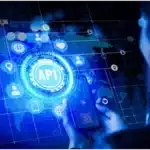Can AI Write Code for Meta? What That Means for the Future of Tech

Imagine a world where apps like Facebook and Instagram could update themselves, with no human typing the code. That future might sound like something from a sci-fi movie, but Meta CEO Mark Zuckerberg believes it’s coming soon. In fact, he recently said that within just a year or two, most of Meta’s code could be written by AI.
This could change the way big tech companies—and even smaller businesses—build and manage their software. But what does it really mean when machines start writing the code?
Let’s explore this big shift in a way that’s easy to understand.
AI Is Already Doing More Than You Think
Today, AI is not just a helpful assistant. At Meta, artificial intelligence is already handling some pretty big jobs. It’s being used to check for safety issues in new code, help decide what content is safe for users, and manage complex systems behind apps like Facebook and Instagram. According to Zuckerberg, about 90% of Meta’s internal “risk checks” are now done by AI. These are the behind-the-scenes steps that make sure software updates don’t break anything or cause problems.
While people still review many of these changes, it’s clear that AI is doing most of the heavy lifting. That’s already a huge change—and Meta wants to go even further.
Not Just Smarter Autocomplete
Many of us have used tools that suggest the next word when we’re typing, or auto-fill code when building a website. Those tools are helpful, but they only assist the human doing the work. What Meta has planned is more advanced.
Instead of just giving suggestions, future AI systems at Meta could write complete programs on their own. These systems would also be able to find mistakes, fix bugs, and even improve the code over time—without needing much help from people. That’s a big step toward true automation, where the AI doesn’t just help you write code—it becomes the coder.
Faster Updates, Bigger Risks
If AI takes over coding, one obvious benefit is speed. AI can work 24/7, without taking breaks, and it can write code much faster than a human. This could help Meta release new features quickly and save money by reducing the need for large engineering teams.
But there are also risks. AI might write code that includes bugs or causes apps to crash. Even worse, it might miss something important—like a privacy rule or a content safety guideline. If the system isn’t carefully watched, the results could be harmful to users or damaging to the platform.
So while AI might make things faster, it also means we need better tools and people to check that everything still works safely.
Can AI Really Replace Engineers?
Some people wonder if AI can really take the place of human engineers. Writing simple code might be easy for a machine, but building complex apps and making sure they work in real life is much harder. Humans bring experience, creativity, and judgment—things that AI still struggles to match.
Even Zuckerberg has changed his timeline. At first, he said this kind of AI coding might happen by 2026. Now he thinks it could arrive even sooner. Still, many tech experts are skeptical. They believe that while AI will take over some coding tasks, humans will still be needed for the most important parts.
In the future, engineers might spend more time supervising AI, checking for mistakes, and improving the code AI creates. This could change what it means to be a programmer.
How This Affects Everyone Else
You might think this change only matters to coders, but that’s not true. If AI starts writing and updating apps on its own, it could affect how businesses, creators, and even students use technology.
For example, marketing teams might see new features appear on Facebook faster than before. Small businesses might need to adjust how they advertise or post content. And people who work in teams—like students or content creators—may need tools that support account sharing so everyone can access the same platforms efficiently.
As AI changes how platforms work, the people using them will need to stay flexible and ready to learn.
AI, Automation, and Your Website
AI isn’t just useful for coding at big companies like Meta. It’s also helping everyday creators and business owners manage websites, run ads, and grow their online presence. One of the most exciting uses of AI today is helping people boost website traffic through automation. These tools act like real people browsing your site, which helps improve rankings and visibility on search engines.
This means more people can discover your content or products—without you needing to spend hours doing everything by hand. As AI tools continue to grow, they will become an important part of running websites, blogs, or online stores.
The Importance of Transparency
With AI making more decisions, it’s important for companies like Meta to stay open and honest. Users need to understand how AI is being used—especially when it’s making choices that affect their experience.
Transparency means explaining when AI writes or changes something, and letting people report problems if they see something wrong. It also means giving users control, so they know what parts of a platform are managed by humans and what parts are controlled by machines.
When people feel informed and involved, they’re more likely to trust the system.
Final Thoughts
AI writing code might sound like a future dream, but at companies like Meta, it’s already becoming real. While we don’t know exactly when AI will take over most of the coding work, it’s clear that big changes are coming. The future will likely include both humans and machines working together to build the tools we use every day.
If you’re someone who uses technology to create, build, or grow online, now is a great time to learn about AI. Try out tools that make your work easier, stay up to date with how platforms are changing, and explore ways to use AI to your advantage.
Because whether you’re coding an app, running a business, or just sharing ideas with the world, AI will be part of your journey—and it’s already helping write the next chapter.

8 Benefits Of Implementing Sales And Commission Software For Business Growth

Unlocking Business Intelligence: Why Power BI Training is the Future of Data-Driven Success

Custom Boba Cups: How Personalization Can Boost Your Boba Tea Business

Accelerating drug discovery through the DEL-ML-CS approach

AI in Marketing Is No Longer a Buzzword — It’s the Strategy

2D Art: Why Human Creativity Trumps Automated Generators

AI Community Groups Power Businesses More Than Online Classes

Unlocking the Future: Resources for Securing Next-Gen Connectivity








